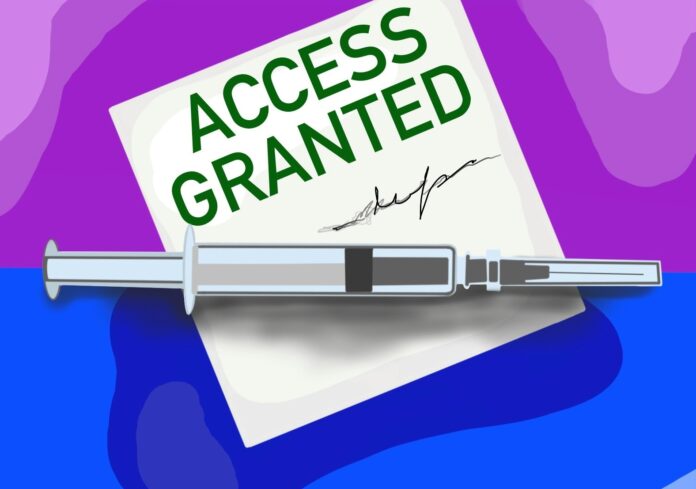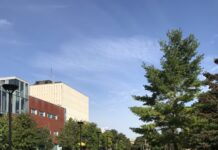The fourth wave of the COVID-19 pandemic has begun in Ontario, and early modelling shows that hospitals may be overwhelmed by the end of October. In an attempt to combat the spread of the disease and prevent further lockdowns, the Ontario government will be launching a vaccine passport program.
Known officially as the “enhanced COVID-19 vaccine certificate system,” it will require people to show their vaccination receipt and photo ID when entering certain facilities. The system will come into effect on Sept. 22.
“We know vaccines provide the best protection against COVID-19 and the Delta variant,” said Christine Elliott, Ontario deputy premier and minister of health. “To protect the health and well-being of Ontarians, our government will offer one more tool to encourage even more Ontarians to receive the vaccine so they can safely enjoy activities with their loved ones and support their local businesses.”
The passport requirement currently applies to “higher-risk” settings in which a mask cannot be worn the entire time. This includes restaurants, bars, gyms, nightclubs and concerts. Several universities in Ontario, including the University of Waterloo, are also requiring that students, staff, faculty and guests provide proof of vaccination before coming to campus.
Most Canadians approve of the new program — a poll conducted in September found that 80 per cent of Canadians are in favour of vaccine passports. However, there has been some opposition. The Canadian Civil Liberties Association argues that the passports are a violation of privacy, as vaccine status is considered personal health information and no one should be required to disclose it. Some bioethicists and Ontario government officials agree with these arguments.
“[The passports] may offer substantial public benefit, but it is an encroachment on civil liberties that should be taken only after careful consideration,” said Ann Cavoukian, former Ontario privacy commissioner.
A joint statement from the federal, provincial and territorial privacy commissioners stated that the program is acceptable only if the privacy risks associated with passports are proportionate to the public health purposes they are intended to address. In this way, the perceived loss of privacy is justified based on the public safety risk posed by COVID-19.
Despite support from the majority of the public, Ontario Premier Doug Ford has been hesitant about implementing the program. He initially stated that the passports would create a “split society,” increasing derisiveness between the vaccinated and unvaccinated. However, he has since acknowledged that the passport program would be better than having to enter another lockdown.
“We have two options here. We either do this or we risk shutting down the economy, which would even be worse, having our hospital capacity maxed out and at the brink, having our kids stay at home, our college and university kids going back online. That is what we are trying to avoid,” Ford said.
At the time of writing, 74 per cent of Ontarians have received at least one dose and 69 per cent are fully vaccinated. The number of vaccine appointments doubled after the passport program was announced, indicating that the mandate will likely encourage more people to get vaccinated. Isaac Bogoch, one of Toronto’s leading infectious diseases specialists, believes that this is a good thing.
“People who might have been sitting on the fence are going to say, ‘Wow, if I want to participate in non-essential activities, go to non-essential businesses, like restaurants, like bars, like concerts or whatever, I need a vaccine, I’m going to go get one’,” Bogoch said in an interview with CTV News Toronto.
Like many health experts, Bogoch said he believes that encouraging hesitant people to get vaccinated can prevent the spread of the disease and allow life to return to normal. While he views passports as a positive way of protecting individuals and their communities, others view it as being unfairly forced into vaccination.
“If we premise access to certain rights or access to full participation in society on people being vaccinated, that becomes a form of coercion where you’re not really being vaccinated because you choose to. You’re being vaccinated because you feel you have no choice,” said Cara Zwibel, director of the Canadian Civil Liberties Association.
A recent U.S. court case on the same topic found that vaccine mandates “are not a hard coercion” because they are only being applied to non-essential services, and there are other options available for those who choose not to be vaccinated. The debate will continue as more provinces in Canada start to institute vaccine passports, with a federal passport possibly being introduced in the future.
































